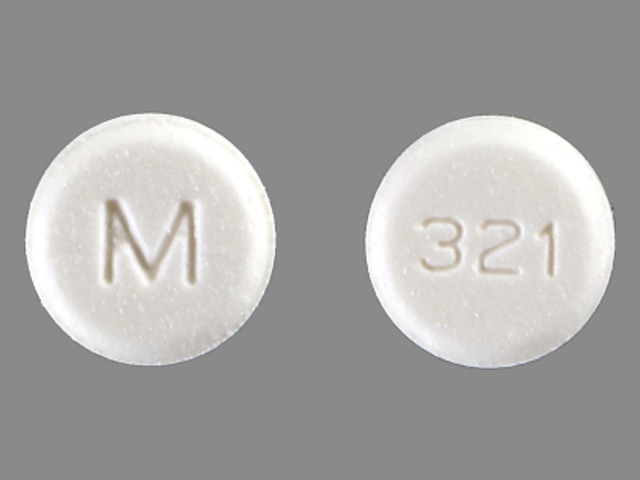How does Ativan Make you Feel?
Ativan is a brand name prescription drug that is used as an emergency treatment for status epilepticaus, nausea and vomiting, serotonin syndrome, and alcohol withdrawal as well as the short-term management of generalized anxiety disorder, panic disorder, other anxiety disorders, and phobias.
ATIVAN 2MG
The main component of Ativan, lorazepam, is a member of a group of medications known as benzodiazepines, sometimes known as benzos, which increase the effects of GABA, a neurotransmitter that slows down nerve activity in the brain and induces sleep.
It is significant to remember that abruptly stopping taking benzodiazepines might cause dependence, rebound effects, and withdrawal symptoms.
Why Choose Ativan Alternatives?
For anxiety or insomnia, ativan is administered. It is injected by a medical expert to treat seizures and to provide procedure sedation.
Like the majority of antidepressants, ativan only treats symptoms not root causes. Chemical dependence, tolerance, and a structurally changed nervous system are common side effects for those who use Ativan for an extended period of time. The longer this vicious cycle continues, the more difficult it becomes. There are effective Ativan alternative treatments, with the most successful being the identification and correction of the real underlying causes of anxiety and other troubling symptoms.
The Natural Ativan Alternatives
The advantages of using natural Ativan alternatives for anxiety over medications like alprazolam or antidepressants are that they typically do not build habits and carry almost no risk of harmful side effects or overdose.
For those with substance abuse problems or histories of substance misuse, this can be of greatest priority.
Taurine is an amino acid that helps in relaxing the brain. It shares many similarities with GABA, a relaxing neurotransmitter that promotes relaxation. Taurine is widely available at many natural health stores.
Magnesium
Magnesium is a mineral that the body naturally produces. Fortunately, adding magnesium supplements is simple.
Ashwagandha
Ashwagandha is a possible herbal substitute. The basic underlying idea behind how antidepressants work is to raise serotonin levels. As such, the ability of ashwagandha to achieve this on its own may be advantageous for people who experience anxiety. However, there is uncertainty over how well ashwagandha works to cure these conditions.
Inositol
The brain contains substantial amounts of the chemical inositol. Neurotransmitters use inositol to transmit messages between brain cells.
Centella Asiatica
Unknown exact mechanisms behind how this plant induces anxiolysis.
Rhodiola Rosea
Placebo-controlled randomized clinical trials have shown this herb to improve symptoms in individuals with anxiety, depression, and insomnia.
Thiamine
Thiamine functions as a coenzyme in the body’s important metabolic processes using carbohydrates
Kava
Kava is a promising ativan alternative.
Conclusion
For thousands of years, people have used herbs to treat a variety of illnesses. According to scientific research, several herbs may be able to reduce the signs and symptoms of anxiety.
Natural medicines have the advantage of frequently being more affordable and secure.
Uses of Ativan
treatment of
- anxiety,
- insomnia, or
- status epilepticus (continuous seizures),
Ativan
is used to treat anxiety. Lorazepam belongs to a class of drugs known as benzodiazepines which act on the brain and nerves (central nervous system) to produce a calming effect. This drug works by enhancing the effects of a certain natural chemical in the body (GABA).
SIDE EFFECTS OF ATIVAN 2MG
Ativan may cause serious side effects including:
- severe drowsiness,
- thoughts of suicide or hurting yourself,
- unusual changes in mood or behavior,
- confusion,
- aggression,
- hallucinations,
- worsened sleep problems,
- sudden restless feeling or excitement,
- muscle weakness,
- drooping eyelids,
- trouble swallowing,
- vision changes,
- upper stomach pain,
- dark urine, and
Most common side effects of Ativan include:
- dizziness,
- drowsiness,
- weakness,
- slurred speech,
- lack of balance or coordination,
- memory problems, and
- feeling unsteady
DESCRIPTION
Ativan (lorazepam), an antianxiety agent, has the chemical formula, 7-chloro-5-(o-chlorophenyl)-1,3- dihydro-3-hydroxy-2H-1,4-benzodiazepin-2-one:
C15H10Cl2N2O2 MW: 321.16
It is a nearly white powder almost insoluble in water. Each Ativan (lorazepam) tablet, to be taken orally, contains 0.5 mg, 1 mg, or 2 mg of lorazepam. The inactive ingredients present are lactose monohydrate, magnesium stearate, microcrystalline cellulose, and polacrilin potassium.
INDICATIONS
Ativan (lorazepam) is indicated for the management of anxiety disorders or for the short-term relief of the symptoms of anxiety or anxiety associated with depressive symptoms. Anxiety or tension associated with the stress of everyday life usually does not require treatment with an anxiolytic.
The physician should periodically reassess the usefulness of the drug for the individual patient.
DOSAGE AND ADMINISTRATION
Ativan (lorazepam) is administered orally.
For optimal results, dose, frequency of administration, and duration of therapy should be individualized according to patient response.
To facilitate this, 0.5 mg, 1 mg, and 2 mg tablets are available.
HOW SUPPLIED
0.5 mg, white, five-sided (shield shape) tablet with a raised “A” on one side and “BPI” and “63” impressed on reverse side.
NDC 0187-0063-01 -Bottles of 100 tablets.
1 mg, white, five-sided (shield shape) tablet with a raised “A” on one side and “BPI” and “64” impressed on scored reverse side.
NDC 0187-0064-01 -Bottles of 100 tablets.
NDC 0187-0064-10 -Bottles of 1,000 tablets.
2 mg, white, five-sided (regular pentagon) tablet with a raised “A” and impressed “2” on one side and “BPI” and “65” impressed on scored reverse side.
NDC 0187-0065-01 -Bottles of 100 tablets.
Keep bottles tightly closed.
Keep out of reach of children.
Store at 25°C (77°F); excursions permitted to 15° to 30°C (59° to 86°F) [see USP Controlled Room Temperature].
Dispense in a tight container.
Side effects
adverse reactions to benzodiazepines, including lorazepam are fatigue, drowsiness, amnesia, memory impairment, confusion, disorientation, depression, unmasking of depression, disinhibition, euphoria, suicidal ideation/attempt, ataxia, asthenia, extrapyramidal symptoms, convulsions/seizures, tremor, vertigo, eye function/visual disturbance (including diplopia and blurred vision), dysarthria/slurred speech, change in libido, impotence, decreased orgasm; headache, coma; respiratory depression, apnea, worsening of sleep apnea, worsening of obstructive pulmonary disease; gastrointestinal symptoms including nausea, change in appetite, constipation, jaundice, increase in bilirubin, increase in liver transaminases, increase in alkaline phosphatase; hypersensitivity reactions, anaphylactoid reactions; dermatological symptoms, allergic skin reactions, alopecia; syndrome of inappropriate antidiuretic hormone (SIADH), hyponatremia; thrombocytopenia, agranulocytosis, pancytopenia; hypothermia; and autonomic manifestations. Paradoxical reactions, including anxiety, excitation, agitation, hostility, aggression, rage, sleep disturbances/insomnia, sexual arousal, and hallucinations may occur.
The more common side effects of Ativan include:
- drowsiness or sleepiness
- dizziness
- weakness
- confusion
- lack of coordination
- depression
- fatigue
- headache
- restlessness
- changes in libido (sex drive)
- memory problems
- Breathing effects. Symptoms can include:
- slowed breathing
- respiratory failure, which is rare
- Low blood pressure, which may be severe enough to cause fainting or falls.
- Convulsions or seizures. Symptoms can include:
- uncontrollable, sudden movements in your arms or legs
- loss of consciousness or awareness
- stiff muscles
- staring spells
- Dependence, misuse, and addiction, which are more likely in people who take higher doses of Ativan or use it long term, or those who misuse alcohol or drugs.*† Symptoms of physical dependence can include:
- anxiety
- depression
- muscle weakness
- nightmares
- body aches
- sweating
- nausea
- vomiting
- Serious allergic reactions. Symptoms can include:
- severe rash or hives
- trouble breathing or swallowing
- swelling of your lips, tongue, or face
- rapid heartbeat
- Suicidal thoughts. (Because of this, Ativan should be avoided by people with depression that’s not treated.)
- Life threatening side effects if taken with opioid medications.* (See the “Ativan interactions” section for details.)
Slowed breathing is more likely to occur in people who are:
- older in age
- receiving high doses of Ativan
- Asthma
- Shakey hands and legs
- Hallucinations
- Insomnia
- Nausea
- Vomitting
- Sun strokes









